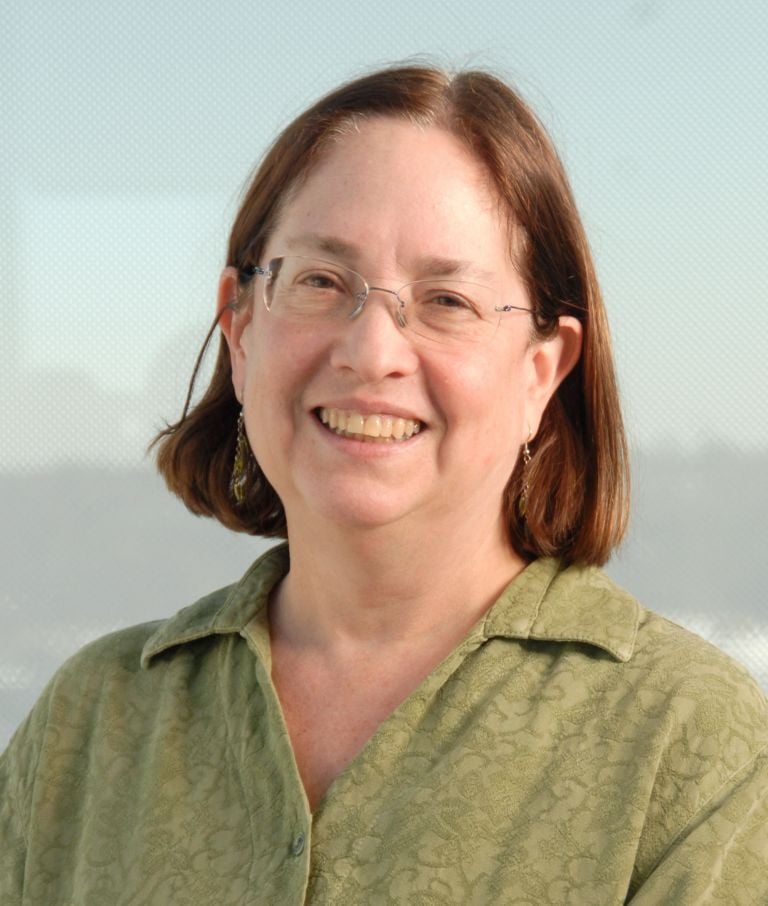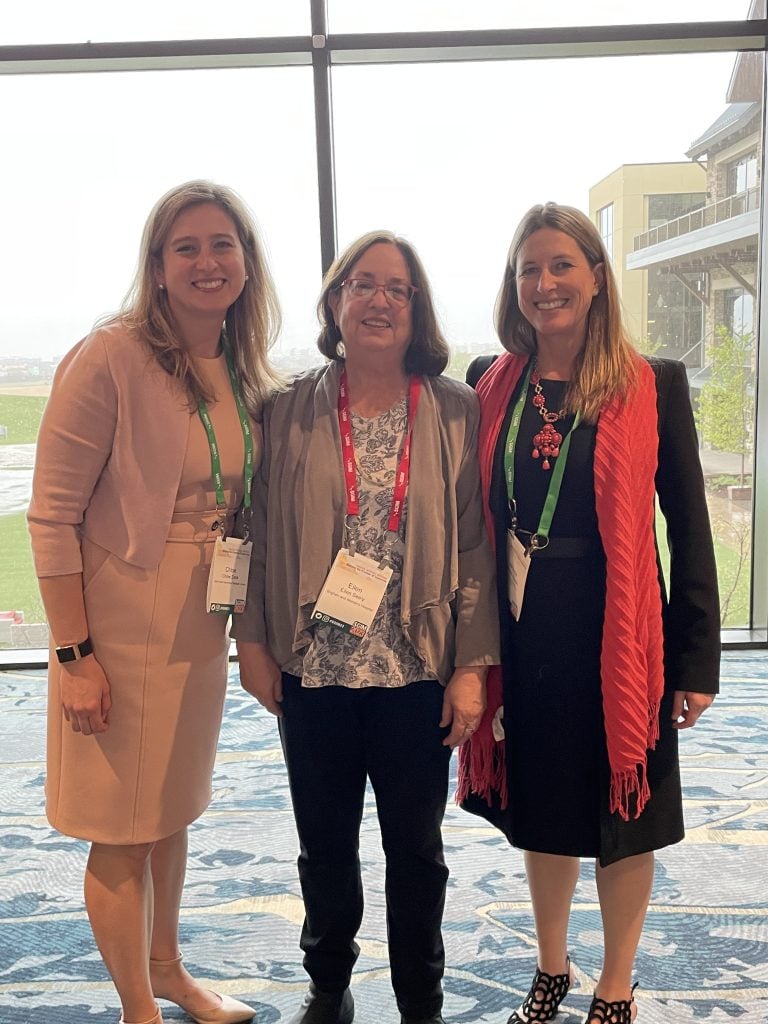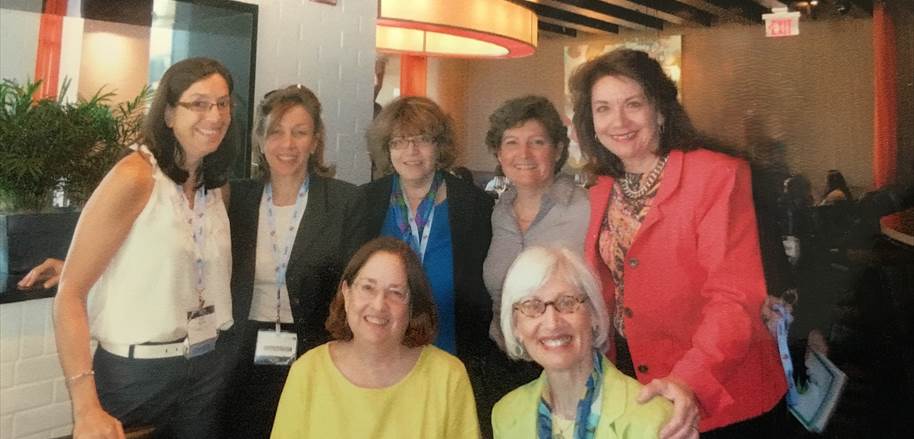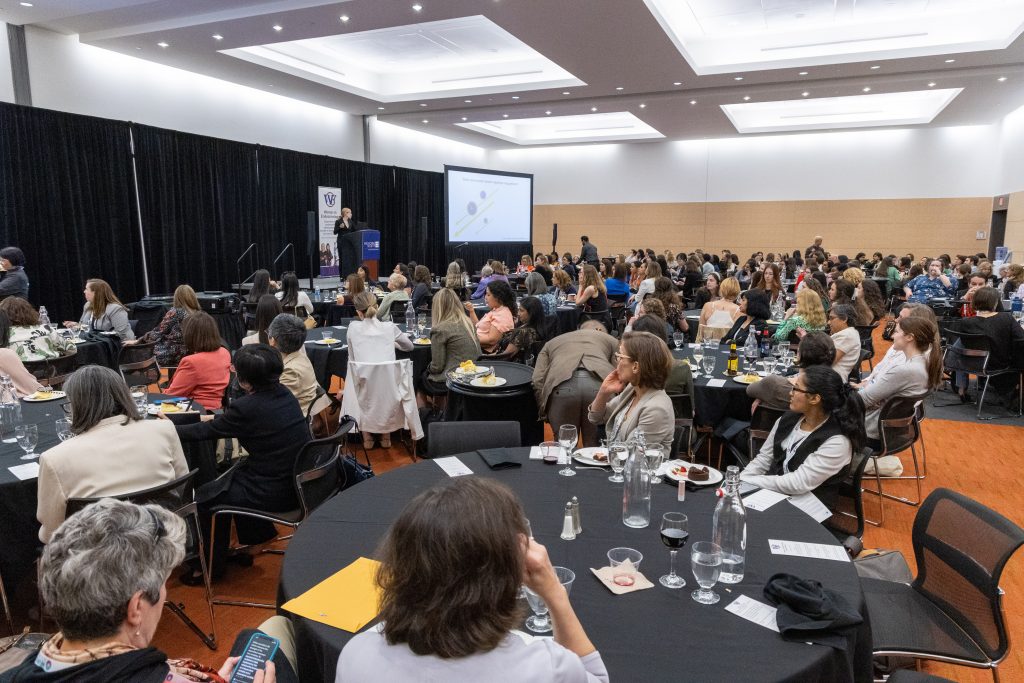The Endocrine Society’s 2025 Outstanding Mentor Laureate Award recipient Ellen Seely, MD, mentors both early-career endocrinologists as well as peers both in the U.S. and abroad. She discusses this unique arrangement as well as the excitement she feels when previous mentees become her research colleagues.

For Ellen Seely, MD, mentoring is a rewarding, reciprocal relationship where both the mentor and mentee benefit from the experience. This ideal rings true as she shares her pride at watching young mentees of her past blossom into accomplished research colleagues.
Seely has been honored with the Endocrine Society’s 2025 Outstanding Mentor Laureate Award for her significant positive impact on mentees’ education and career.As the director of the Clinical Research, Endocrinology, Diabetes, and Hypertension Division in the Department of Medicine at Boston’s Brigham & Women’s Hospital since 1987, Seely is world renowned for her studies of the impact of hypertensive disorders of pregnancy and gestational diabetes on the future health of women. Along the way, she has supported faculty development and well-being, medical student teaching, training in grant writing and clinical investigation, FDA advisory committees, student thesis review committees, and many more initiatives for mentees in the U.S. and around the world.
Endocrine News asked Seely more about what drives her dedication to mentoring the next generation of endocrine scientists.
Endocrine News: What did hearing the news of the recognition for Outstanding Mentor mean to you?
Seely: Mentoring has been one of the most important efforts of my career so being recognized for it by my Society is the most meaningful recognition I could receive.
“As my research crosses several disciplines, I recognized early on in my career that I needed to create a mentoring network as opposed to working with a single mentor. As a result, I had different mentors for different aspects of my career, and many were not endocrinologists.” — Ellen Seely, MD, director, Clinical Research, Endocrinology, Diabetes, and Hypertension Division, Department of Medicine, Brigham & Women’s Hospital, Boston, Mass.
EN: What motivates you to offer your time and wisdom to peers and students?
Seely: I find mentoring very rewarding. It’s wonderful to work with individuals early in their careers and play a role in launching them. It’s very special when my mentees then become my partners in research. In a good mentoring relationship, I believe there should be mutual benefit. I learn so much from the questions my mentees ask, and they are important members of the team that helps move the research forward.

Nicklas (Primary and Obesity Care) (right).
EN: I imagine the mentoring support needs of your peers and students are quite different.
Seely: My mentoring philosophy consists of three main tenets: 1. We need mentoring at all stages of our careers; 2. Those who mentor can learn how to mentor more effectively and efficiently; and 3. It’s never too early to start mentoring. As a result, the learning experience I provide is actually similar at different career stages though the emphasis may differ.
EN: What impact did mentors have on your early career? Or, who made the biggest impression when you were beginning your career?
Seely: My research has been on the sequela of cardiometabolic complications of pregnancy primarily preeclampsia and gestational diabetes and how they predict future CVD and diabetes. As my research crosses several disciplines, I recognized early on in my career that I needed to create a mentoring network as opposed to working with a single mentor. As a result, I had different mentors for different aspects of my career, and many were not endocrinologists. I cannot name them all but here are a few. At the start, there was Gordon H. Williams, MD, at Brigham and Women’s Hospital (BWH). Dr. Williams is an endocrinologist whose work focuses on mechanisms of hypertension and who was division director during my fellowship. He taught me about the field of hypertension as well ashow to present abstracts and write grants and manuscripts. There was also Marshall Lindheimer, MD, from the University of Chicago, who is a nephrologist with a focus on preeclampsia and who introduced me to opportunities in the field such as relevant meetings and travel awards. Also, there was Eugene Braunwald, MD, a BWH cardiologist and chief of Medicine who gave me important overall career direction advice.
Later on, Janet Hall, MD, was a career mentor encouraging me to come to the annual ENDO meeting, which I had stopped attending since the research presented did not have much coverage relevant to my research area. She invited me to become a member of the Research Affairs Committee of which I eventually became co-chair. This re-exposure to the Endocrine Society led it to becoming a home organization to me.

Carolyn Becker.
In addition, organically, a group of women who trained in endocrinology around the time I did, were getting together for lunch yearly at the annual ENDO meeting. We recognized that we had formed, in addition to long lasting friendships, a peer-mentoring group. My experiences have informed my approach to teaching mentoring to mentors as well as mentees — the workshops I have developed and run stress the importance of creating and maintaining mentoring networks that evolve over time.
EN: You’re recognized as offering an approach to mentoring “without borders” and mentor persons outside of the U.S. Do these relationships begin in the U.S. and continue if a colleague relocates or do you advise mentees who you’ve never met in person?
Seely: My mentoring across borders occurs primarily through the mentoring programs I have created and have been invited to run at mentoring workshops throughout the U.S. and in other countries. I have run such workshops for both mentors and mentees in Canada, Portugal, and Lebanon.
“In a good mentoring relationship, I believe there should be mutual benefit. I learn so much from the questions my mentees ask, and they are important members of the team that helps move the research forward.” — Ellen Seely, MD, director, Clinical Research, Endocrinology, Diabetes, and Hypertension Division, Department of Medicine, Brigham & Women’s Hospital, Boston, Mass.
In addition, I have had individual international mentees. I’ll give you just one example of how international mentoring has worked for me. I met João Sérgio Neves, MD, PhD, in 2015 when I was running a mentoring program in Porto, Portugal where I gave him feedback on his research on gestational diabetes. We later reconnected at ENDO 2017 in Orlando and ENDO 2018 in Chicago.
Then, when he came to Boston in 2019 for a three-month research internship at BWH, he joined my lab group, took on a project, and coauthored a paper with my research group. We met again at ENDO 2024 in Boston, and we will continue to meet and collaborate now as colleagues.

Shaw is a freelance writer based in Carmel, Ind. She is a regular contributor to Endocrine News and writes the monthly Laboratory Notes column.

